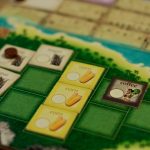What follows is a guest post by Jay Miller. Recently, a draft proposal of a presidential executive order was obtained and printed by the Chicago Sun-Times. Under the banner of “Making Federal Buildings Beautiful Again,” the leaked document effectively mandates the classical style of architecture for all federal buildings in the U.S. It seeks to right the wrongs of modernist architecture by officially proclaiming the classical style of architecture “the preferred and default style” for federal buildings. The proposal proceeds by first identifying the culprits: It blames the federal government for “largely abandon[ing] traditional, classical designs” in the 1950s; it accuses the General Services Administration (GSA) of overseeing “aesthetic failures”; even more specifically, it takes aim at the “Guiding Principles for Federal Architecture,” drafted in 1962 by an aide of the Kennedy administration, for having “implicitly discouraged” classical and other designs “known for their beauty.” Yet, the real target of … Continue reading
April 16, 2020
by Alex King
0 comments





